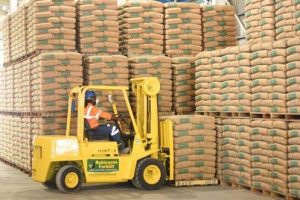
Jamaica makes bid to boost small earnings from huge Indian market
Jamaica’s first resident diplomat to India is making the case for the strategic importance of increased trade and investment flows between the two countries on the eve of his departure to take up the post of envoy in the second most populous nation in the world, the second-largest democracy and the sixth-largest economy. Having got a feel for diplomacy as Jamaica’s ambassador to Mexico for the past two years, business development and marketing specialist Jason Hall is looking to logistics investment, the sustainable energy sector, high-end professional services outsourcing, the knowledge economy and agribusiness development as top areas for the pursuit of vastly increased trade in goods and services, as well as investments between Jamaica and India. In this focus, he is at one with his counterpart, Runsung Masakui, India’s high commissioner who took up office in Jamaica last November. WATCH: Jason Hall eyeing to boost Jamaica’s earnings from Indian market The current generally low level of trade in goods between the two countries and the gaping trade imbalance favouring the Asian nation, which now sells about US$61 million worth of goods to Jamaica each year, is a source of concern for both men charged with promoting the economic, social and political interests of their respective countries. Jamaica imports mainly pharmaceuticals, motor vehicles, iron, steel and fish products from India, and sells mainly electrical machinery and aluminium to the Asian nation. Turning the tide on Jamaica’s paltry earnings of less than US$280,000 from exports to India’s humongous market of 1.3 billion people is a motivating force for Hall; firing up the Jamaican as he prepares for his second foreign posting, he told the Financial Gleaner in an interview at the foreign ministry in New Kingston this week. “From a strategic perspective, India’s success, capacity and expertise in science and technology recommends it as a perfect partner for Jamaica to build capacity in those areas, with important application in agribusiness and agro-processing, and enhancing route to market for our farmers,” Hall said. He cited processed foods, coffee, spices, condiments, essences and black castor oil as products with great potential for increased exports to India, which recorded a gross domestic product of US$2.8 trillion in 2020. Jamaica’s new high commission to India, who takes up office later this month, is also looking forward to a take-off for his home country in global digital services from enhanced India-Jamaica relations, providing opportunities for the greater outsourcing of back-office operations of Indian companies to Jamaica in the areas of finance and legal services, among others. In this regard, Hall views Jamaica’s nearshore location to the large Indian target market of the United States and the island’s high-quality English language proficiency as a distinct asset for increased high-value knowledge processing outsourcing business. “Currently, there is business processing outsourcing, but we have a tremendous opportunity here for Jamaica to move up the value chain. Additionally, there is potential to increase our capacity in medicine, pharmaceuticals and healthcare delivery,” the diplomat said. In his view, there is also scope for significant knowledge transfer in the area of solar energy development with India’s proven track in the area and its hosting of the International Solar Alliance, of which Jamaica is a member. Increased cooperation in tertiary education delivery and scientific knowledge transfer from India to Jamaica, through educational collaboration, are also on the cards. The promotion of Jamaica’s special economic zone legislation and infrastructure will be on the agenda for Hall, who is also accredited to Singapore, Sri Lanka, Malaysia and Nepal. In this regard, he brings to the job several years’ experience in investment and trade promotions as the regional manager for the Caribbean and Latin America for Jamaica’s state investment and trade promotions agency, Jampro. He also marketed Jamaica as deputy director for cruise shipping, attractions and events at the Jamaica Tourist Board, JTB; and was Caribbean marketing and business development manager for food manufacturer and distributor Nestlé. Hall speaks five languages, including French, Portuguese, Spanish and siSwati, spoken by the Swazi people of southern Africa. Not to be overlooked, he said, is the export of Jamaica’s cultural content, and a collaborative framework involving Jampro, JTB, other state agencies and private-sector groups is said to already be in place to carry forward this and other trade and investment promotions activities. Hall pointed to an economic diplomacy programme out of Jampro and the Jamaica House cultural and manufactured products and services showcase already pioneered by the JTB, as areas in which he has worked and on which he will be drawing heavily as Jamaica’s high commissioner to India, and ambassador to other nations in the Indian subcontinent and other parts of southern Asia. In the ongoing effort to transition Jamaica from a solely goods-trading economy to being mainly a service-based economy, Hall said the opportunities presented by India in this regard are real and are being taken seriously.












